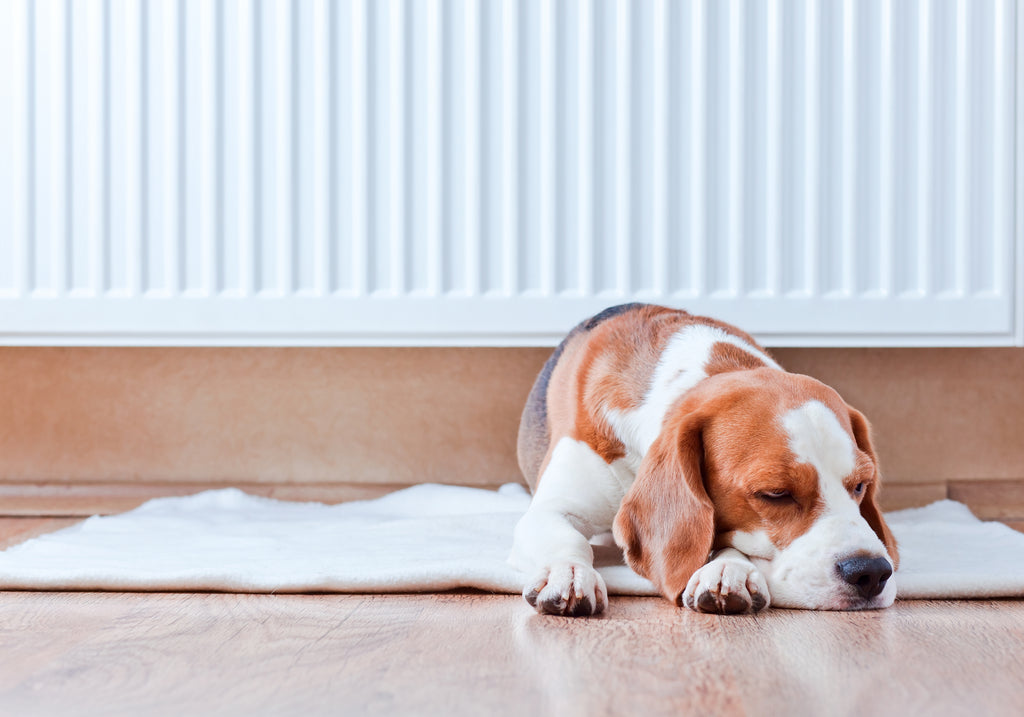Oiling Hardwood Floors: How Often Should Hardwood Floors Be Oiled?
Posted by WOCA WOODCARE

When you think of the warmest, most comfortable homes you’ve been in, what do they all have in common? If you’re like us, it’s the wood flooring.
Hardwood floors are popular for a variety of reasons, from eye-catching design and nearly endless varieties to easy cleanup and even enhanced home value!
Something that is often overlooked, however, is wood floor maintenance. To keep your floors protected and looking their best, you should regularly add a fresh coat of oil to your boards.
But, what are the signs that your floors need treatment? How often should you be oiling hardwood floors in the first place? What can you do to maintain your flooring between oiling? In this guide, we’ll tell you why you should be oiling your hardwood floors and how you can use oiling to get the most out of them.
Why Should I Oil My Hardwood Floors?
There are plenty of benefits to oiling your hardwood floors. But two in particular — protection and natural warmth — stand out among the rest.
- Protection – Regularly oiling your hardwood floors adds an extra layer of protection to prevent dings, dents, and scratches. The deeper the oil penetrates the wood, the more resistant your boards will be to wear and tear.
- Natural Warmth – Most oils don’t “re-color” the wood fibers. Instead, they bring out the natural colors of the wood itself. Some also accentuate grain patterns, adding a new level of richness to your floor’s appearance. There are certain oils that add hues, but regular oiling makes the actual, natural wood the star of the show.
Not sure which oil to select? Instead of coating floors to have a high gloss finish, WOCA’s maintenance oil soaks deep into the flooring, leaving a flexible film that’s water repellant. Using an oil like this as a durable floor finish will keep your floors looking superb — even in high-traffic areas.
How to Tell If Your Floors Need Re-Oiling
There are a few characteristics to look for when deciding if it’s time to re-oil your hardwood floors. Here are a few tell-tale signs:
- The wood looks dry
- The wood grain feels more noticeable to the touch
- Your floor seems to get dirtier more easily
- Your floor looks dull and is showing signs of wear
- Surface scratches are present
One thing is certain: It's crucial to keep the coating of your floor in proper condition to minimize the risk of more serious scratches, scrapes, and chips down the line. So if you see the warning signs above and think it may be time to re-oil your floors, don’t put it off!
How Often Should You Oil Your Hardwood Floors?

The frequency varies depending on the level of foot traffic, dirt, and animals within that area of the home. A good rule of thumb is to re-oil your floors every 3 to 5 years.
If you’re like us, you value your time and convenience. If every 3 to 5 years still seems like too much effort, know that it is possible to extend the length of time between re-oiling by using WOCA’s oil refreshing soap about once every 3 or 4 months. In place of a full re-oiling, this soap revitalizes your oiled floors by adding oil that penetrates into the wood, building back up the protective layer on the surface while it cleans.
Maintaining Hardwood Floors Between Oiling
There are measures you can take between oiling to keep your wood floors looking fresh and protect them from damage. Taking a few minutes each day to maintain them using the tips below can greatly extend the life of not only the oil finish, but your wood floors overall.
- Sweep & Vacuum on a Regular Basis - Removing dirt and dust daily will help keep your floors clean and prevent buildup. Make sure to use a vacuum that is wood floor-friendly so that you don’t scratch or dull your floor’s finish.
- Avoid Liquids - Any type of liquid spilled onto your flooring should be cleaned promptly. Liquid left on your wood floors can cause stains and warping, which can be difficult to repair in the long term. In the event that a stain does occur on your wood floor, use WOCA stain spot remover to quickly remove the stain and get your floor back to looking as if nothing ever happened.
- Use the Right Products - Make sure to only use cleaning products, such as WOCA’s natural soap, that are designed specifically for wood floors. This will ensure that your wood flooring doesn't become discolored and that the oil doesn’t get stripped by the chemicals that appear in many other harsh cleaners. Along with the products you use, double check that the tools you have on hand aren’t abrasive on the wood surface. Tools such as the WOCA spray mop have a reusable and machine washable cotton microfiber pad to gently cleanse your wood flooring without any scratching.
Preserve Your Beautiful Hardwood Floors
Wood floors are a stellar choice for any home. Not only are they long-lasting when properly taken care of, but they create a timeless and inviting sense of warmth in your space. With a little upkeep and re-oiling several times a year, they can stay looking brand new for generations.
For a step-by-step guide on how and when to clean and oil your floors, check out our residential oil-finished floor maintenance guide.
SHARE:


Woca Woodcare On
##- Please type your reply above this line -##
Your request (46047) has been updated. To add additional comments, reply to this email. -—————————————————————-
jennifer@naturalcoatings.us, May 13, 2024, 11:04 AM EDT
ilhyphy
Jennifer Sanderson WOCA Woodcare 877-962-2645
Sunny, May 10, 2024, 11:41 PM EDT